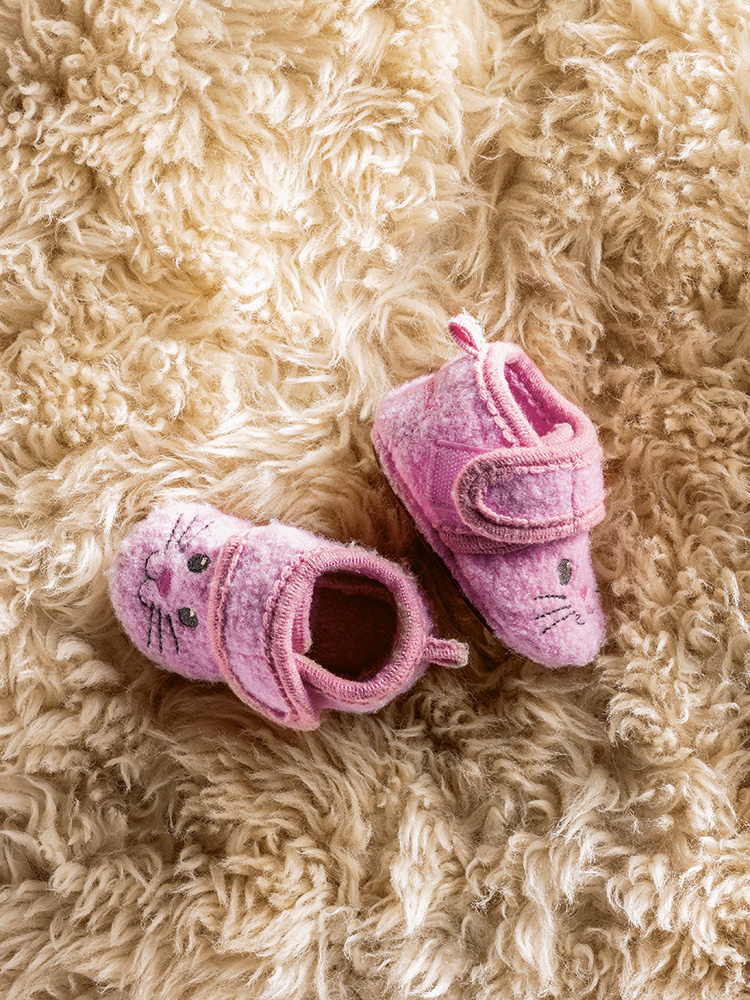Rethinking parenthood.
Text: Noëmi Kern
Having a child changes your life completely. Birth rates, however, have been falling for years. Is the pressure on parents simply too much? And could new models of the family help?
Do I want a child? Do I think I’m up to the job of being a parent? And am I ready for this kind of responsibility? Many people between the ages of 20 and 40 ask themselves questions like these. Unlike changing jobs or moving to a new city, however, there’s no way to try out how parenthood feels. The American philosopher Laurie Ann Paul describes having a child of your own as a transformative, existential experience. Becoming a parent is such a radical and unique event, she says, that it is beyond our powers of imagination. Unlike with other decisions, it’s therefore impossible to make rational predictions.
Pressure from the system
“This is a decision that involves existential risk and has a fundamental and long-term impact on a person’s life,” says Sabine Hohl, Professor of Philosophy at the University of Basel. In her research, Hohl studies parenthood and how it is perceived in society. She examines the conditions for parenthood, the role of biological kinship, what rights and duties are associated with becoming a parent, and whether it should also be possible to have three or four parents per child.
Becoming a parent involves taking on a huge amount of responsibility. For Hohl, the key thing is a person’s willingness to do so. In her view, if someone takes on this responsibility, neither their gender nor their sexual orientation should stand in the way of them being recognized as a parent.
“Even today, concepts of what constitutes a family are still dominated by social norms and ideals,” she says. According to Hohl, this puts considerable pressure on parents, because the role of a parent comes with many expectations. Although self-imposed, these expectations are also undoubtedly strongly influenced by society. For women, more so than for men, having a child still results in major changes in their lives. “During the childrearing phase, women are expected to be in the service of others and perform a variety of roles,” says Hohl. They’re expected to care for the children as a “good mother,” while also engaging in gainful employment. According to Hohl, it’s not easy to unpick how much of this pressure comes from society and how much is self-imposed by the mothers themselves. “After all, we’re all heavily influenced by our environment and adopt the concepts we want to conform to.”
The same applies to fathers, who are now playing a more active role in families but are still expected to continue performing at full capacity in the workplace. “It’s vital for parenting and working life to be compatible for both parties,” says Hohl.
Shared responsibility without a romantic partnership
Hohl’s research seeks to encourage a rethinking of fixed concepts of what constitutes a family. “We tend to hold parents responsible for everything their children do and for what happens to them. For some people, this can be a seemingly insurmountable burden.” According to Hohl, different parenting constellations would allow for greater freedom.
For example, she cites the model of co-parenting, which is already being practiced by some people. This is when two individuals decide to have a child and raise it together without being in a romantic relationship. A good friendship can also provide a good basis for parenthood. “Relationships break up, marriages end in divorce, but parental responsibilities are still fulfilled jointly. The parental role is therefore based on rights and duties that exist regardless of relationship status.” Accordingly, Hohl says that parenthood and relationships should be considered and regulated separately — and that biological kinship should not be a prerequisite when it comes to being recognized as a child’s parent. “I think we need new options that should also be enshrined in a corresponding legal framework,” she says.
Hohl believes that the advantage of co-parenting is that those involved would have to discuss what it means to have a child together in advance and in much greater detail: What will the relationship look like? How will we organize the caring responsibilities? Who will pay for what?
She believes that the idea of “parenthood light” is also worth exploring. “There’s no reason why we have to give each parent the same bundle of rights and duties.” As the law stands, it’s possible for someone to have visitation rights but no right of custody. By extension, Hohl suggests that more than two people could have visitation rights or even a right of custody to a child.
She is aware that ideas like these may be met with skepticism or even rejection. “I certainly don’t want to play down how complex this might be. Nevertheless, I would argue in favor of legally allowing there to be three parents, for example.” This would mean that the huge responsibility that comes with parenting could be shared between more people. “It wouldn’t deprive anyone of anything. On the contrary, it could be an opportunity for everyone involved.”
In the future, advances in the world of medicine could raise further questions — of a social, ethical and legal nature. Hohl is sure that the idea of what constitutes “normal” parenthood will change. “If we’re open to new models, parenthood could become a multifaceted concept.”
More articles in this issue of UNI NOVA (November 2025).

